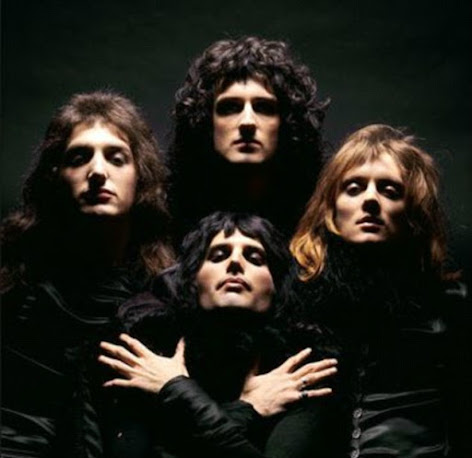#Lykantropi #hard rock #blues rock #folk rock #psychedelic rock #retro-1970s #Swedish
Melody Lane had an interview with Martin Ostlund, singer and guitarist of the Swedish psychedelic folk melancholic rockers Lykantropi. A great band highly recommended to fans of Coven, Blue Oyster Cult and Fleetwod Mac.
Melody Lane: First of all, can you tell us where the name Lykantropi comes from?
Martin Ostlund: In my opinion it´s the process and transformation in the creation of songs. A song is like chapters in a book that is transforming in a way by its dynamic etc., and also I do love horror movies and you can hear that in the lyrics.
Melody Lane: The line-up of the band is confirmed. Is it the same from the beginning of the band, or have you had changes in the last years? Can you tell us something about the roots of Lykantropi? And where the band was born?
Martin Ostlund: I started the band in about 2013. No one except me was in the band from the beginning. Tomas joined us about 2014-15, Ia and My about the same time. We had just recorded our first album when the drummer decided to drop out, so then came Ola. The latest to join is Elias. He was a stand-in player instead of Pär “Pärry” Nordwall, and became a member about a year ago.
Melody Lane: Can you list us five songs from the Lykantropi discography (including new material), that can define the sound of the band. Five songs that can help our readers to know Lykantropi.
Martin Ostlund: Black Old Stone, Julie and Alexandra on the first album, Vestigia and Sällsammanatt on Spirituosa. Kom ta migut and Coming Your Way on Tales to be told
Melody Lane: Tell us something about the creative process of your music. Is there a main composer or is there team work? The songs come from ideas of a single member and then the band works on these ideas in the studio jamming together, or your songs are written in the studio and all the members compose together? What about messages and subjects of your lyrics?
Martin Ostlund: Oh, it’s different depending on which song, but what’s new for us is that me and Tomas have spit the writing on the new album. I did almost everything on the first two except two songs on Spirituosa. Both me and Tomas come with the skeleton of a song idea, and we work together as a band. Some songs have messages, but you have to read between the lines of fiction and private exposures. Some songs are inspired by old folklore and fairytales, but also we have much fantasy in it with the Northern melancholy touch.
Melody Lane: Apart from the all the problems and troubles related to the Covid-19 pandemic, any chance for us to see Lykantropi playing live here in Italy/Europe in the next months/years? Maybe summer festivals? Any plans?
Martin Ostlund: We actually had plans for a tour in Italy, Spain, etc. just before the pandemic, so yes, we will come and play when it’s all over.
Melody Lane: Could you tell us two bands, from the actual international scene, you’d like to tour with? Two bands that would represent a perfect line-up for Lykantropi to play with. And why these bands?
Martin Ostlund: English Purson, and maybe The Blood Ceremony. They have both the groove in their sound, but different in their sound.
Melody Lane: We know that ‘to define is to limit’ but how do you define the Lykantropi sound? Are you a psychedelic rock band? Prog/folk band? Vintage ‘70s rock band?
Martin Ostlund: Well, we define ourselves in all those actually. But the main thing is that we love vintage amps and what we call the warm tube sound, so there you go! Vintage rock it is!
Melody Lane: Which musicians are/have been your main musical inspirations?
Martin Ostlund: I have to say Fleetwood Mac´s “Then Play On”, and Swedish 60s-70s artist Bo Hansson; he played the Hammond organ, and has done instrumental records and is famous for “The Lord of the Rings” made in the 70s.
Melody Lane: Which are your favorite bands nowadays? Are there any musicians you’d really like to collaborate with? And why?
Martin Ostlund: No favorite, but I really like Amanda Werne in Slowgold, and also the Swedish band Amason with amazing Amanda Bergman on vocals. Great musicians and bands with the heart and soul in your face.
Melody Lane: What has been the most important concert for Lykantropi’s career?
Martin Ostlund: Hmm, I don’t know! We have had some great concerts in different places. Geronimos and Debaser in the capitol of Sweden Stockholm are some of them.
Melody Lane: As a musician, what has been your biggest achievement to date and what do you want to achieve in the near future?
Martin Ostlund: I think the latest soon to be released “Tales to be Told” is a really great record, where we as a band work together in the best way. It’s the best so far of our three albums in my opinion. We have plans for making a new album in the near future without revealing too much.
Melody Lane: Are you totally satisfied with your choices about sound and the writing of your previous albums? If you could, would you change anything?
Martin Ostlund: We are satisfied with the sound on all our albums. Even some years later.
Melody Lane: In the end - a message from you to all Melody Lane readers.
Martin Ostlund: Message to the people! Close your eyes in a calm spot in your favorite nature surroundings, and hopefully you hear and listen to mother earth’s prayer for our future existence and how we can take care of this place we call earth. A big kiss from Lykantropi.
From: https://www.melodylane.it/NEWSITO/index.php/818-lykantropi



























